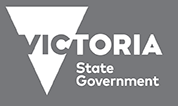Sexual and reproductive health has a defining impact on the lives of women and gender-diverse people across the life course.
We recognise sexual and reproductive health as a core component in the fight for gender equality, and are committed to challenging the norms, structures and practices that limit women and gender-diverse people’s access to positive, pleasurable and affirming sexual and reproductive health outcomes.
Are you looking for resources on this topic? See our Sexual and Reproductive Health Resources page.
Sexual and Reproductive Health and Gender Equality
Sexual and reproductive health is often understood as a purely clinical issue, however it is a key piece in the fight for gender equality. Poor sexual and reproductive health outcomes are both determinants and products of gender inequality.
In sexual and reproductive health promotion, we must consider the drivers of inequality and the underlying social conditions that produce poor and inequitable sexual and reproductive health outcomes and experiences. We must make explicit the connections between gender inequality, other forms of discrimination and disadvantage, and sexual and reproductive health. This includes the inextricable link between sexual and reproductive health and gender-based violence, made clear in experiences of sexual assault and reproductive coercion. Action to promote sexual and reproductive health needs to be implemented at every level of society and tailored to different contexts and the needs of different groups.
Our Work
The Sexual and Reproductive Health Team at WHIN provides leadership and resourcing for strategic regional work to promote women and gender-diverse people’s sexual and reproductive health in the NMR, including the development and implementation of our regional strategy Freedom, Respect and Equity in Sexual Health 2022–2026.
Our work focuses on:
- addressing the laws, policies and structures that currently limit women and gender-diverse people’s access to optimal sexual and reproductive health outcomes
- fostering inclusive environments, supportive of sexual and reproductive health, in health services, workplaces, education and community settings
- facilitating community engagement and centring lived experience in sexual and reproductive health promotion activities and advocacy
- building capacity of health professionals, organisations and communities in the NMR to support the sexual and reproductive health of women and gender-diverse people
- supporting and facilitating an integrated approach to sexual and reproductive health through collaborative, multi- setting partnerships.
Sign up for WHIN’s Sexual and Reproductive Health e-News
Freedom, Respect and Equity in Sexual Health 2022–2026
Women and gender-diverse people living in the NMR continue to be disproportionately affected by poor sexual and reproductive health. Many local government areas have higher than state average teenage birth rates, chlamydia, gonorrhoea and hepatitis B notification rates, and some areas have much lower cervical screening and HPV immunisation rates compared to the state average. In five out of seven local government areas in the NMR, fewer than half of early medical abortion services received by patients are prescribed from within the local government area, indicating that abortion seekers need to travel to access services.
Freedom, Respect and Equity in Sexual Health 2022–2026 (FRESH) has been designed to guide regional action to improve sexual and reproductive health across the NMR. We acknowledge that sexual and reproductive health is a complex, multi-faceted area that requires clinical and non-clinical interventions – which can seem daunting. A regional approach that facilitates knowledge sharing, networking and collaboration will strengthen collective impact through a shared vision and commitment towards positive change. We welcome collaboration and engagement across sectors with this strategy, and are eager to work together towards an NMR where all women and gender diverse people can freely exercise their rights to positive, pleasurable and affirming sexual and reproductive health outcomes.
If you would like to get involved in sexual and reproductive health promotion in the NMR or to hear more about our specific projects, get in touch with Coordinator, Sexual and Reproductive Health Tilly Mahoney at tilly.m@whin.org.au.
Family and Reproductive Rights Education Program (FARREP)
FARREP is a state-wide health promotion program that works with communities to prevent female genital cutting (FGC). At WHIN, FARREP works with communities and healthcare professionals to increase awareness of FGC and increase access to culturally sensitive support and services to women and girls impacted by or at risk of FGC, including appropriate referral pathways.
As part of this work, WHIN has been pleased to develop, produce and distribute FGC fact sheets, which can be accessed on the Sexual and Reproductive Health Resources page.
Professional Development
WHIN delivers FGC professional education sessions to clinicians and allied health staff upon request. The sessions focus on the social and cultural aspects of FGC to improve culturally sensitive service provision for women and girls with lived experience of FGC.



